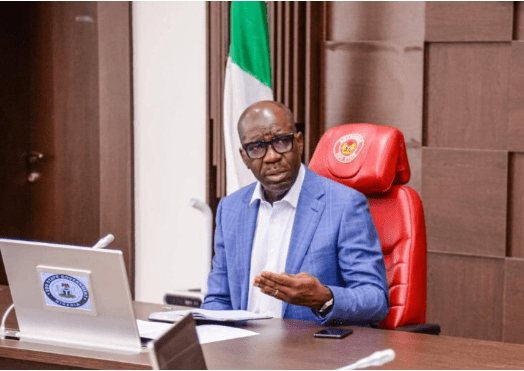Edo State Governor, Godwin Obaseki, has revealed that his administration was able to pay the new N70,000 minimum wage to its workers and fund various developmental projects by cutting the cost of governance.
Obaseki disclosed this in a statement on Monday, stating that the state government planned for the minimum wage three years ago when the initial signs indicated the economy was heading in the wrong direction.
He said, “I am able to pay N70,000 because two or three years ago, I raised an alarm that we were resorting to massive borrowings, which will be inflationary in the long run. I predicted there would be a massive devaluation of our currency.
“You will ask, if you knew this, what did you do? We knew it would translate into the demand for higher wages because of inflation and so we said, look, let’s focus on building a much more efficient economy. Let’s focus on reducing our cost of governance. Let’s focus on training our people and getting more productivity out of them.”
Obaseki and reduction of cost of governance
Obaseki detailed his government’s efforts to reduce the cost of governance, saying, “We have a Power Purchase Agreement (PPA) to buy 5–10 megawatts of power for all government offices and street lights at night, eliminating the need to buy diesel.
“We’ve also implemented a fleet management service, integrating our transport system similar to Uber, which has significantly reduced our operational costs.”
He added, “The savings allow me to invest more in my people, increasing their salaries to boost productivity. We measure teachers by learning outcomes and monitor attendance through technology. I’ve also aligned drug purchases with primary healthcare dispensations, thanks to our investments in technology infrastructure, including 2000 kilometers of fiber optic cable connecting every local government.
“With this infrastructure, we can extend telemedicine and connect doctors across the State. This approach aims to improve the lives of our people, even if it faces initial resistance.”
Obaseki also noted that his administration’s investments in security have made Edo the safest state in the South-South region and one of the most secure in the country. This has bolstered investor confidence, attracting businesses and boosting economic activity.
He stressed that security is a local issue, involving the decentralisation and democratisation of security systems to include community participation. Over 15,000 vigilante operatives now patrol the 18 local government areas, enhancing safety and security.
The state has also equipped these operatives with communication devices and surveillance equipment, including numerous street cameras and a Command and Control Centre for rapid response.
Obaseki stated, “Edo is still the safest state in this zone. By decentralizing and democratizing security, we ensure community participation in policing. We have trained and equipped 15,000 vigilantes and invested in surveillance infrastructure.
“Despite occasional incidents, we respond quickly. The primary crime issue is cultism, leading to homicides, but we are addressing it with security agencies. Today, investors are not deterred by insecurity.
“If you visit at night, you’ll see people conducting business late into the evening. We’ve improved security significantly, fostering a thriving night economy in Edo, especially in Benin.”

